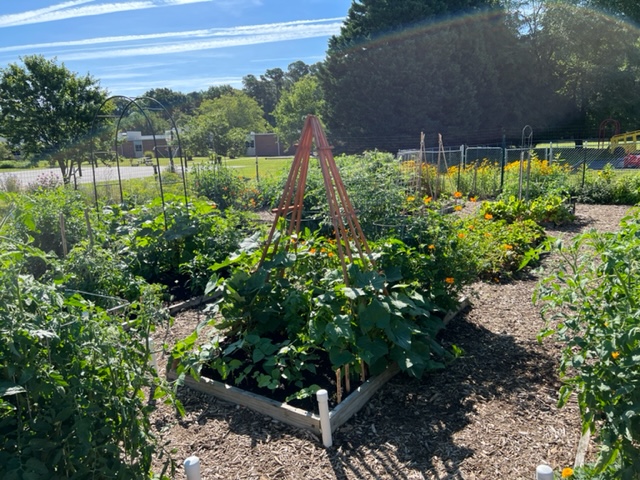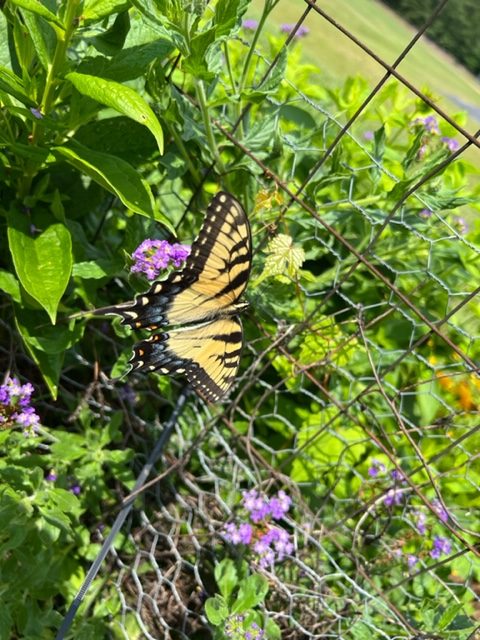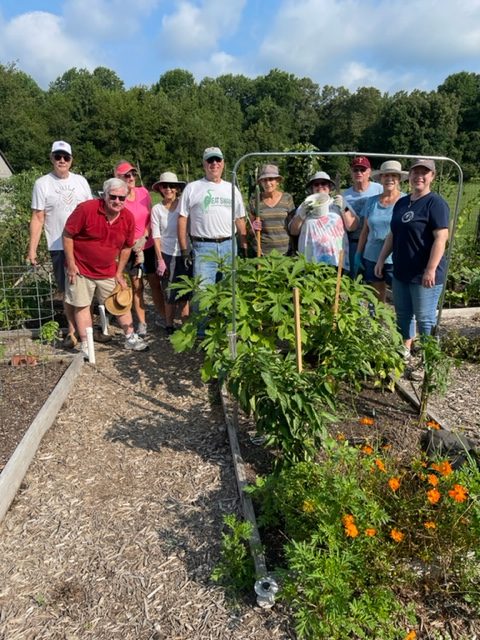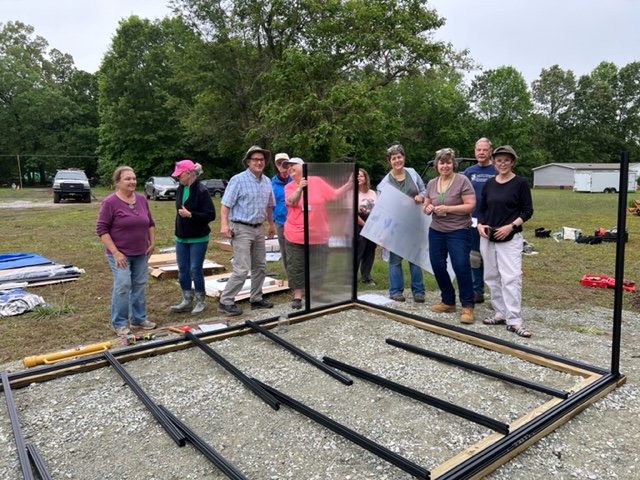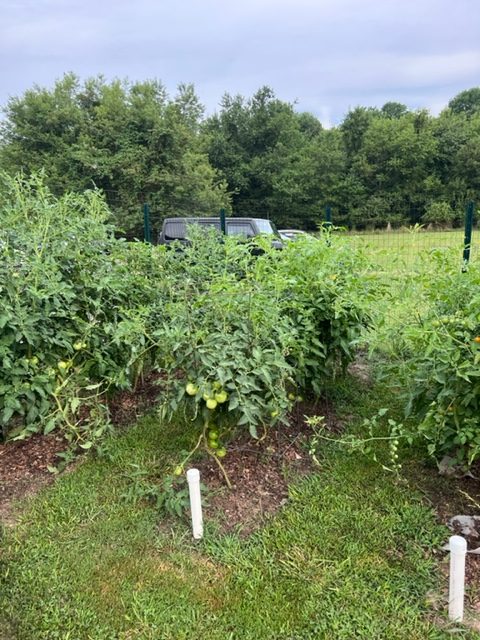What Is Going on at the Historic Triangle Learning Garden?
The Historic Triangle Learning Garden is one of many projects led by members of the James City County/Williamsburg Master Gardeners. It is located right behind the CDR building and next door to Waller Mill Elementary School, at 312 Waller Mill Road. Originally known as “Incredible Edibles,” the project changed its name to the Historic Triangle Learning Garden in 2021 to reflect a broader range of interests, including growing flowers, supporting pollinators, and practicing other aspects of organic gardening, in addition to vegetable production.
The learning garden has been an active project for over twelve years, and continues to be educational, productive, and fun for the participants. Co-Leaders on the project are Bill Dichtel and Harriet Parsons. Other leaders are Kim Silver-Perry who directs our growing and harvesting for our food bank partners, and Helen Cronk who directs the work on the Border Garden.
An Expanding Garden
The garden continues to evolve and grow through the years. The main portion of the garden is a section with fifteen 4’ by 8’ raised beds. In 2021, a bump-out of an additional four hundred square feet of garden space was added to increase the planting area. There are also some container plantings within the garden. This is surrounded by a seven-foot fence to limit deer intrusion and tunneling with underground barriers to limit groundhog invasion. So far, these barriers have been quite successful in protecting edible crops.
A “Border Garden” or “Pollinator Garden” supports a variety of perennials and annuals. It includes milkweed, and several other specific plants to attract Monarch butterflies, and other pollinators, to the garden’s Monarch Way Station. The Border Garden, which surrounds the main garden, dresses up the garden while also drawing pollinators to the organic vegetable garden.
The HTLG has long wanted to make more beds available both to Master Gardeners and to community gardeners. Beds are always at a premium in the HTLG. Project leadership applied for, and successfully obtained, a microgrant from Virginia Cooperative Extension to increase the gardening space. This summer there are two community gardener participants. Garden beds were also available for three members of the Master Gardener Class of 2022, and for one Master Gardener transfer who joined the project. With the grant, project leadership hopes to accommodate more Master Gardeners and more community gardeners as participants in the Historic Triangle Garden in coming years.
Organic Gardening Techniques
Organic gardening techniques are used throughout the vegetable garden. Volunteers compost on-site and have worm bins producing worm castings. Frequent testing of the soil indicates what may be needed. Garden beds are also enriched with mushroom compost, and organic fertilizers are used judiciously to optimize crop production.
Natural antifungals, such as mustard cover crops, are grown in the off season. Project volunteers have experimented with using Actinovate as an antifungal with the tomato crops this season. Project members are guided in their efforts by academic horticultural websites, and they learn from each other. Educational sessions and discussions are held at the beginning of each garden workday.
A Time of Change
This summer is a time of transition because the land where the garden is located was sold is 2021 to Child Developmental Resources. The existing building is now vacant, and is scheduled to undergo major renovations, including the addition of a second floor. Construction was to begin this summer but has been delayed for now. So, it has been a quiet summer at the garden. Water has always been provided by the building on site. This year, project members installed guttering and a rain barrel on the shed. So far, that has been a helpful supplement but not an essential supply of water.
Community Outreach
Outreach and teaching remain goals of the HTLG group along with vegetable and flower production. One of the projects this summer has been outreach to the Chickahominy Native American Tribe, who received grants to learn gardening techniques and to start a community garden at their site in Providence Forge. Project members held some work sessions with them to construct a greenhouse as part of their efforts. We are hoping that this leads to some back-and-forth educational efforts between the two groups that are mutually beneficial.
Another of the project’s efforts that participants are most proud to support is the outreach program to grow fresh produce for FISH and House of Mercy, for distribution to people who are food insecure. Several hundred pounds of fresh produce are provided to them each year. That effort was a natural process when FISH was a neighbor on-site with the garden, and it has continued to be a part of the Garden’s main mission. Kim Silver-Perry and Renee Kingan head up the harvesting efforts for these groups.
Finally, the HTLG project is not all about work! They also take field trips. The most recent trip was to the Zangarden, the beautiful vegetable garden of Vince and Valarie Zangardi. Vince and Valerie do fabulous trellising and shared other wonderful ideas to take back to the Garden, and to MG’s personal gardens. Project members have a great time learning together and look forward to having more expanded space available for additional gardeners in 2023!
What’s Growing at the Historic Triangle Learning Garden This Autumn?
Our climate allows for a long growing season and crops may be harvested through early winter. Pretty soon, we will have harvested our summer crops such as tomatoes, cucumbers, squash, and peppers. As we get into late August and early September, we will plant fall crops such as lettuce, beans, Swiss chard, peas, or similar crops that we can harvest well into the cold weather. In some beds, we will plant crimson clover to “fix nitrogen” or other cover crops to improve the soil in that bed for the coming spring crop. The Learning Garden will then go into planning mode to set up for a successful growing, learning, and teaching year in 2023.
Bill Dichtel is a class of 2018 JCCW Master Gardener and Tree Steward.
All photos are courtesy of Bill Dichtel. Those wanting more information about this project can reach Bill at [email protected].

